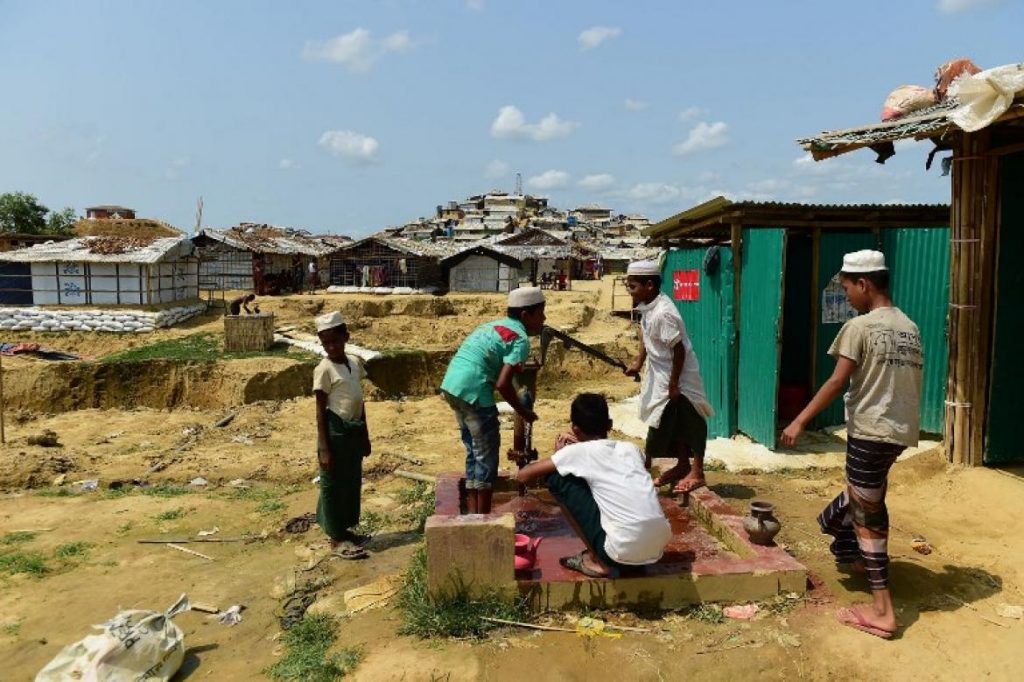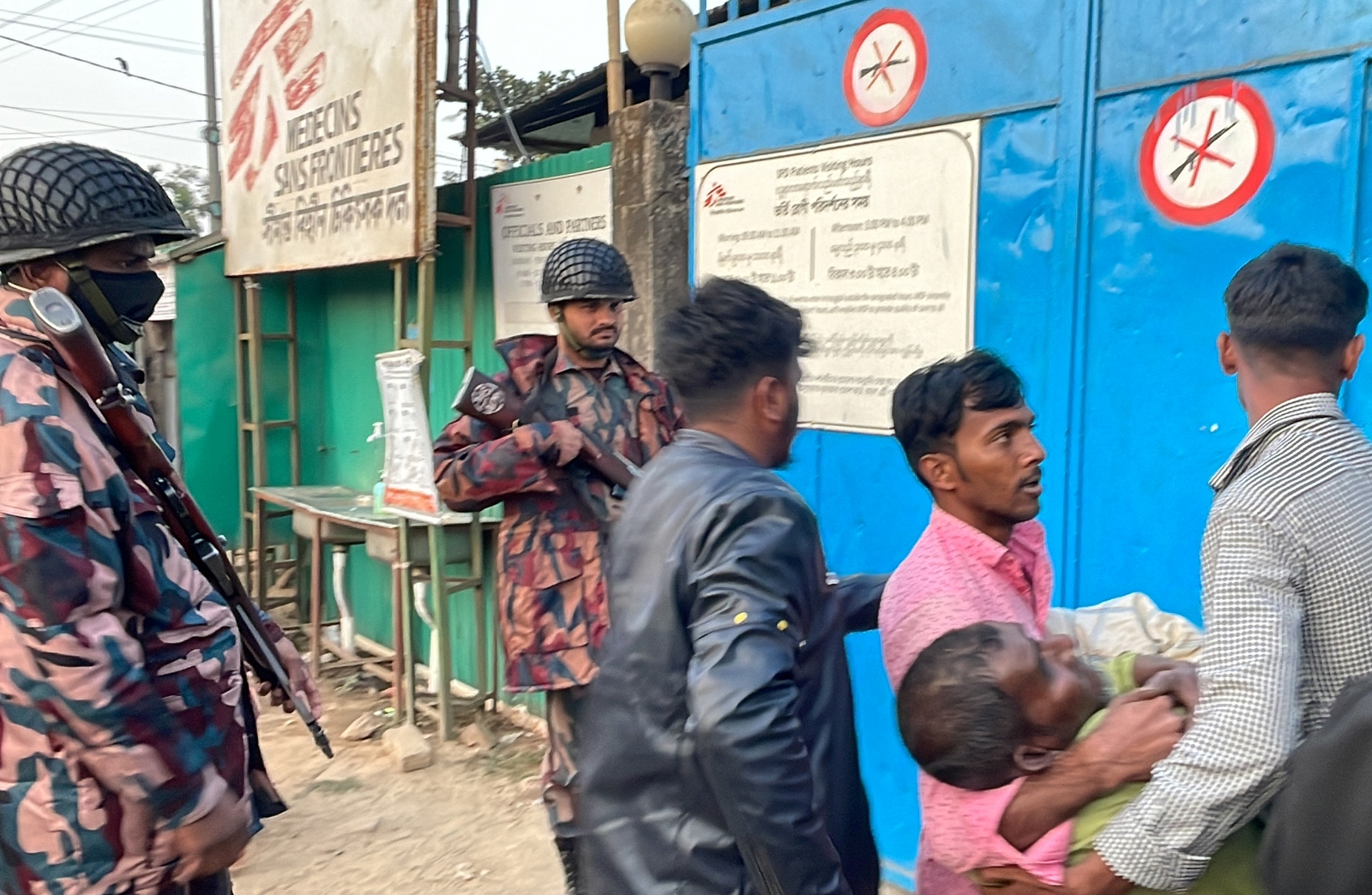Donors need to plan for the “tragic reality” that Rohingya refugees in Bangladesh won’t be coming home any time soon, says think-tank.
It was “imperative” to find sustainable solutions for the hundreds of thousands of Rohingya refugees facing the likely prospect of a prolonged stay in camps in Bangladesh, the International Crisis Group has warned in its latest report on the crisis.
It was a “tragic reality” that the vast majority of refugees were unlikely to return in the foreseeable future, “however much international opprobrium Myanmar faces,” the Brussels-based think-tank said.
As well as continuing humanitarian aid in Bangladesh, donors should also invest in the development of the Cox’s Bazar district, where the refugee camps have been established, “to improve prospects for their future integration”, the report said.
Such investment would also serve to reduce the burden on host communities and minimize the risk of local sentiment turning against the refugees, ICG said in the report, The Long Haul Ahead for Myanmar’s Rohingya Refugee Crisis, released on May 16.
It said the Bangladeshi government was currently resisting such an approach because of the domestic political cost of acknowledging that the Rohingya would remain indefinitely.
Support more independent journalism like this. Sign up to be a Frontier member.
“Similarly, many Western governments are understandably loath to acknowledge explicitly that prospects of the refugees’ return are slim. But sustained political discussions on long-term solutions between the government, donors and multilateral institutions are vital,” the report said.
“Failing to develop plans for the Rohingya’s prolonged stay in Bangladesh risks worsening their suffering and propelling the crisis in a still more dangerous direction,” it warned.
The report said conditions in “the largest and most densely populated refugee camps in the world” were dire and likely to remain so despite an international humanitarian operation costing an estimated US$1.2 billion a year.
The camps house about 900,000 refugees, including nearly 700,000 who arrived after the Tatmadaw operation launched in northern Rakhine State last August following deadly attacks by the militant Arakan Rohingya Salvation Army.
The ICG said that when the Bangladeshi army took charge of the crisis last September it reintroduced a camp management system involving traditional leaders known as majhi, who each represent up to 200 households.
The majhis, who have become the lowest level of political organisation in the camps, are the primary dispute resolution mechanism and the interface between refugees and the Bangladeshi authorities and aid agencies.
The report said that although ARSA had a significant presence in the camps and some of its members claimed to have influence over the majhis, it would be difficult for the militant group to reorganize in Bangladesh.
This was because of the strong presence of Bangladeshi army and intelligence personnel in an around the camps, the geography of the area and the high population density.
The ICG said that although the burden of the crisis may have shifted to Bangladesh, “the onus of responsibility remains squarely on Myanmar”. It said efforts to pursue accountability, “whether through the International Criminal Court or other mechanisms, remain vital, as does pressing Myanmar to improve the situation in northern Rakhine and create conditions conducive to voluntary return.”
The report said improved conditions in northern Rakhine, where between 100,000 and 150,000 Rohingya still live, was not primarily a development challenge, but depended on the Myanmar government and security forces changing course.
Curfews, checkpoints and movement restrictions were making life untenable for Rohingya in northern Rakhine, especially in rural areas.
“To prevent further deterioration, the international community should continue pushing the government to allow unfettered United Nations and aid agency access to northern Rakhine,” the report said.
It expressed hope that the appointment last month of Swiss diplomat Ms Christine Schraner Burgener as UN special envoy for Myanmar, “combined with continued scrutiny and engagement from the Security Council”, would result in some progress in addressing the crisis.
It added that a recent statement by State Counsellor Daw Aung San Suu Kyi promising improved relations with the UN, and the appointment of U Win Myint as President, “may open space for changes in the government’s approach”.







